Comprehensive Guide to Garden Maintenance in Lewisham
Introduction to Garden Maintenance
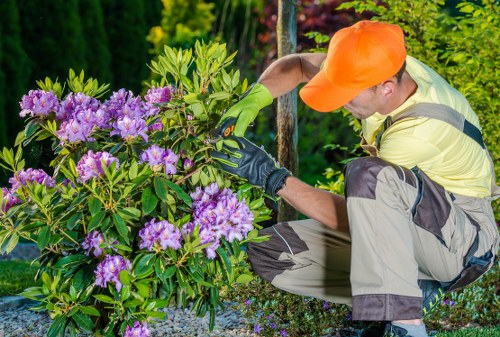
Maintaining a beautiful garden in Lewisham requires a blend of knowledge, dedication, and the right tools. Whether you are a seasoned gardener or a beginner, understanding the essentials of garden maintenance can transform your outdoor space into a vibrant and enjoyable area.
In this article, we will explore various aspects of garden maintenance specific to Lewisham, considering the local climate, soil types, and plant varieties that thrive in this region.
From regular upkeep tasks to seasonal preparations, our comprehensive guide aims to equip you with the skills needed to maintain a lush and healthy garden all year round.
Understanding Lewisham's Climate
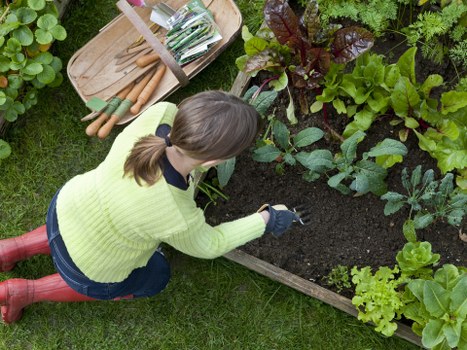
The climate in Lewisham is characterized by mild winters and warm summers, with ample rainfall throughout the year. This temperate climate is conducive to a wide variety of plants, but it also presents unique challenges that gardeners must navigate.
Temperature: The average temperature ranges from 2°C in winter to 22°C in summer, providing a comfortable environment for most temperate plants.
Understanding these climatic conditions is crucial for selecting the right plants and planning maintenance activities that align with seasonal changes.
Soil Preparation and Management
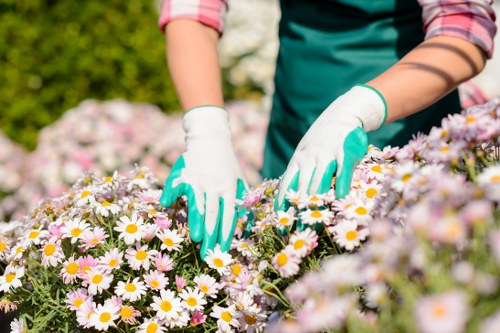
Healthy soil is the foundation of a thriving garden. In Lewisham, the soil tends to be clay-heavy, which can affect drainage and root growth.
Soil Testing: Conducting a soil test helps determine the pH levels and nutrient content, allowing you to amend the soil appropriately.
By incorporating organic matter such as compost or well-rotted manure, you can improve soil structure, enhance fertility, and promote beneficial microbial activity.
Plant Selection and Care
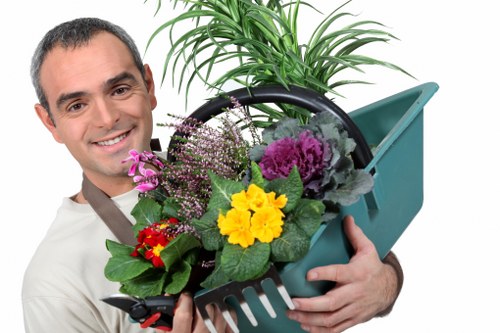
Choosing the right plants is essential for a sustainable and beautiful garden in Lewisham. Consider native species that are well-adapted to the local climate and resistant to common pests and diseases.
Annuals vs. Perennials
- Annuals: These plants complete their life cycle in one growing season, providing quick color and variety.
- Perennials: Perennials return year after year, offering long-term structure and consistency in your garden.
Regular Maintenance Tasks
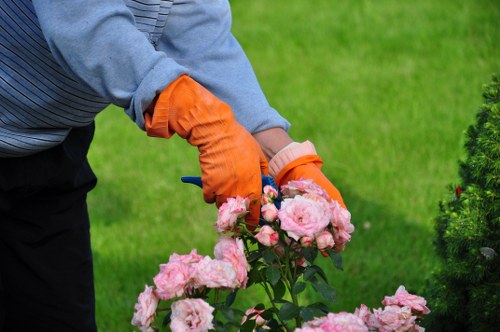
Consistent maintenance ensures that your garden remains healthy and aesthetically pleasing. Key tasks include:
- Pruning: Regular trimming of shrubs and trees promotes healthy growth and prevents overgrowth.
- Weeding: Removing weeds reduces competition for nutrients and minimizes the risk of pests.
- Watering: Adequate watering, especially during dry spells, is vital for plant health.
Implementing a maintenance schedule can help manage these tasks efficiently, ensuring that no aspect of your garden is neglected.
Seasonal Garden Care
Different seasons bring different challenges and opportunities for your garden. Tailoring your maintenance activities to the seasons can enhance plant growth and resilience.
Spring
- Start planting bulbs and perennials.
- Prune affected branches from winter damage.
- Begin a regular fertilization schedule.
Summer
- Increase watering frequency during dry periods.
- Harvest vegetables and fruits regularly.
- Monitor for pests and diseases.
Tools and Equipment for Effective Maintenance
Having the right tools makes garden maintenance more manageable and enjoyable. Essential tools include:
- Pruning Shears: For trimming and shaping plants.
- Garden Fork: Useful for aerating soil and turning compost.
- Hose and Sprinklers: For efficient watering.
Investing in quality tools ensures durability and performance, making maintenance tasks easier and more effective.
Pest and Disease Management
Protecting your garden from pests and diseases is critical for maintaining plant health. Integrated Pest Management (IPM) strategies include:
- Regular Monitoring: Inspect plants regularly for signs of pests or diseases.
- Biological Controls: Introduce natural predators to manage pest populations.
- Cultural Practices: Enhance plant health through proper spacing, watering, and nutrition to prevent infestations.
Early detection and proactive measures can significantly reduce the impact of pests and diseases on your garden.
Landscaping and Design Tips
A well-designed garden not only looks appealing but also functions efficiently. Consider the following tips for landscaping in Lewisham:
- Plant Diversity: Incorporate a variety of plants to create visual interest and attract beneficial wildlife.
- Hardscaping Elements: Use pathways, patios, and borders to define spaces and add structure.
- Vertical Gardening: Utilize vertical space with trellises and hanging plants to maximize growing areas.
Thoughtful design enhances the beauty and functionality of your garden, making maintenance easier and more enjoyable.
Sustainable Gardening Practices
Embracing sustainable practices contributes to a healthier environment and a more resilient garden. Key sustainable practices include:
- Composting: Recycle garden waste into nutrient-rich compost to enrich soil naturally.
- Rainwater Harvesting: Collect and use rainwater for irrigation, reducing water consumption.
- Organic Gardening: Avoid synthetic chemicals by using organic fertilizers and natural pest control methods.
Implementing these practices not only benefits your garden but also promotes environmental stewardship.
Professional Garden Maintenance Services in Lewisham
While DIY gardening is rewarding, professional garden maintenance services can offer expertise and time-saving solutions. Services typically include:
- Regular Lawn Care: Mowing, fertilizing, and aerating your lawn for optimal health.
- Pruning and Trimming: Expert trimming to maintain plant shape and health.
- Seasonal Clean-Ups: Preparing your garden for seasonal changes with thorough clean-ups.
Hiring professionals ensures that your garden receives the care it needs, allowing you to enjoy a beautiful outdoor space without the hassle.
Common Challenges in Lewisham Gardens
Gardens in Lewisham may face specific challenges due to urbanization and local environmental factors. Common issues include:
- Limited Space: Maximizing small garden spaces with smart design and plant selection.
- Pollution: Mitigating the effects of urban pollution on plant health.
- Soil Contamination: Addressing soil contaminants through remediation and improved soil practices.
Understanding and addressing these challenges can help maintain a healthy and thriving garden despite urban constraints.
Enhancing Garden Aesthetics
Visual appeal is a significant aspect of garden maintenance. Consider these tips to enhance the aesthetics of your Lewisham garden:
- Color Coordination: Choose a color palette that complements your plants and hardscape elements.
- Lighting: Install garden lighting to highlight key features and extend usage into the evening.
- Water Features: Incorporate fountains or ponds to add tranquility and attract wildlife.
Thoughtful aesthetic enhancements can transform your garden into a serene and visually stunning retreat.
Conclusion
Effective garden maintenance in Lewisham involves a combination of understanding local conditions, selecting appropriate plants, regular upkeep, and sustainable practices. By implementing the strategies outlined in this guide, you can cultivate a beautiful and resilient garden that provides enjoyment and value for years to come.
Ready to transform your garden? Contact us today to schedule your garden maintenance service and take the first step towards a stunning outdoor space.

